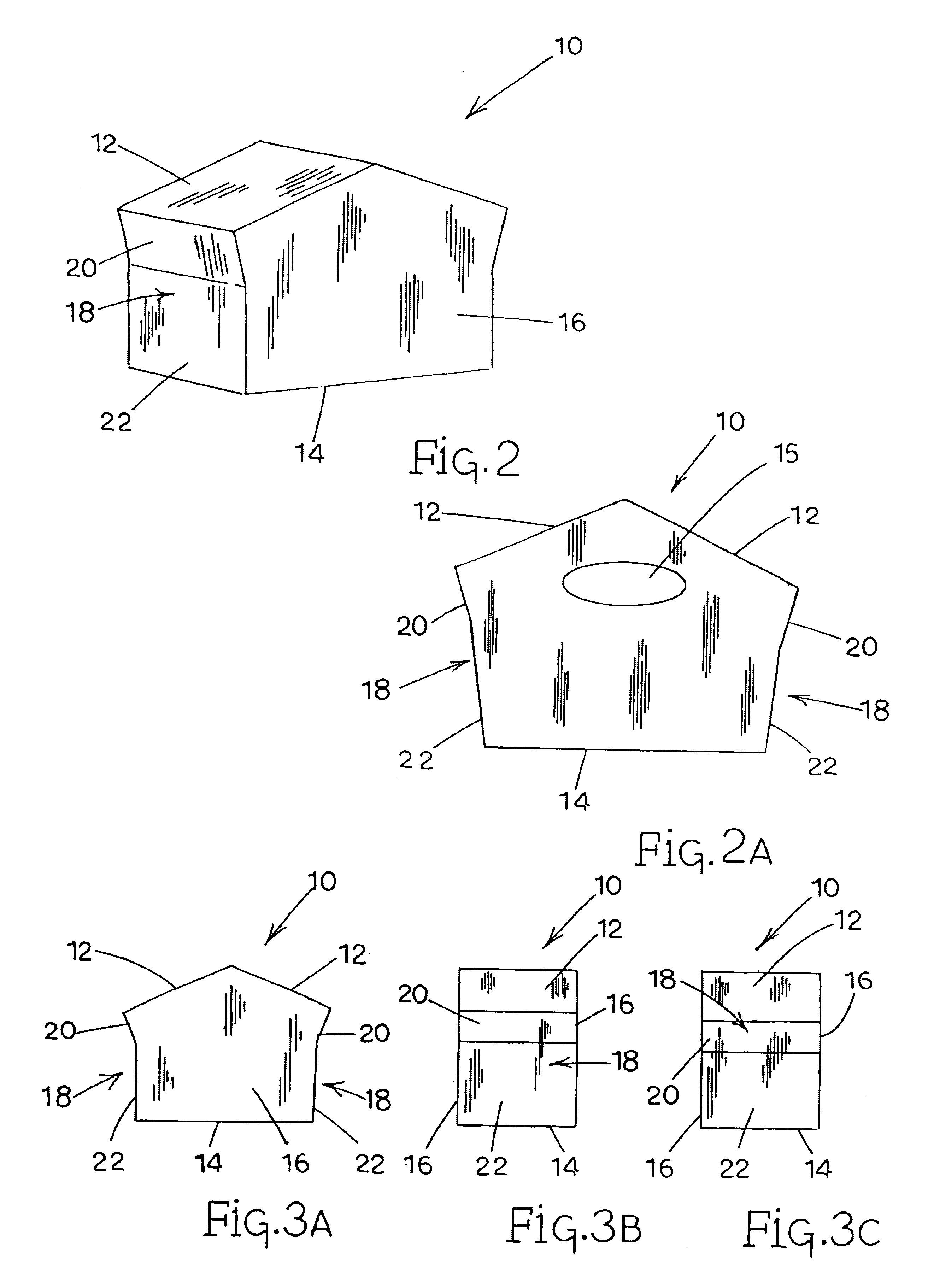Trim edge stripper for a corrugated board rotary cutting die
- Summary
- Abstract
- Description
- Claims
- Application Information
AI Technical Summary
Benefits of technology
Problems solved by technology
Method used
Image
Examples
first embodiment
[0032]Shown in FIG. 2 is the resilient trim stripper 10, which includes a generally pentagonal shape, with the top of this pentagon being comprised of a pair of angled stripper surfaces 12. As illustrated in FIGS. 3A-3C, the pentagonal shaped stripper 10 further includes a generally horizontal base 14, and a pair of generally vertical, sides 16. A pair of front and rear edge surfaces, generally indicated by the numeral 18, form the two remaining sides of the pentagonal shaped stripper 10. While the edge surfaces 18 are generally vertical in nature, the exact shape of these surfaces, in the embodiment illustrated, is in fact not linear. For purposes of illustration, each edge surface 18 may be considered to be comprised of a separate upper curved or bevel filler region 20 and a lower linear or flat region 22, as shown in FIGS. 2 and 3A. As will be appreciated from subsequent discussions, the filler region 20 is designed to fit flush against the upper beveled area of a respective trim...
second embodiment
[0047]In any event, the stripper 100 described in the second embodiment functions in much the same manner as that described above for the first stripper embodiment, with the added benefit of an integral deflector finger 126 which serves to further lower the exit trajectory of the severed scrap material and generally enhance the scrap-product separating performance of the overall rotary die cutting apparatus. That is, the angled surface 112 of the stripper serves to hold the scrap edge of the blank against the anvil cylinder 50 and effectively directs the severed scrap generally downwardly and away from the discharged blank product, while the finger 126 provides for additional downward deflection of the ejected scrap material once this scrap is released by the angled surface 112.
[0048]In FIGS. 10-14, there is shown a third embodiment for the trim stripper of the present invention. The third embodiment is generally similar to the second embodiment discussed above and indicated general...
PUM
| Property | Measurement | Unit |
|---|---|---|
| Angle | aaaaa | aaaaa |
| Length | aaaaa | aaaaa |
| Flexibility | aaaaa | aaaaa |
Abstract
Description
Claims
Application Information
 Login to View More
Login to View More - R&D
- Intellectual Property
- Life Sciences
- Materials
- Tech Scout
- Unparalleled Data Quality
- Higher Quality Content
- 60% Fewer Hallucinations
Browse by: Latest US Patents, China's latest patents, Technical Efficacy Thesaurus, Application Domain, Technology Topic, Popular Technical Reports.
© 2025 PatSnap. All rights reserved.Legal|Privacy policy|Modern Slavery Act Transparency Statement|Sitemap|About US| Contact US: help@patsnap.com



